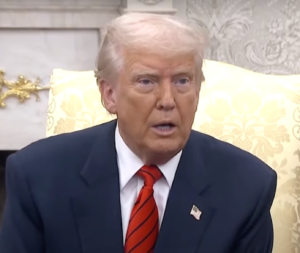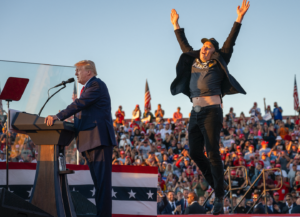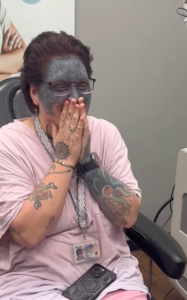In a case that has captured the attention of both the gaming community and legal experts worldwide, a hacker involved in one of the most high-profile video game piracy operations in history has been sentenced not only to prison time, but to an extraordinary financial penalty that will follow him for the rest of his life. The individual, Gary Bowser — an ironic surname considering the famous villain in Nintendo’s beloved Super Mario series — has been ordered to pay Nintendo between 25% and 35% of his salary for the remainder of his lifetime after his release.
This unusual sentence sheds light on the serious legal consequences of video game piracy and the lengths companies like Nintendo will go to in order to protect their intellectual property.
Who Is Gary Bowser?
Gary Bowser, a Canadian national, was a key member of Team Xecuter, an underground hacking group responsible for developing and distributing hardware and software tools that allowed users to bypass digital rights management (DRM) protections on Nintendo’s popular Switch console. These modifications enabled the illegal downloading and playing of pirated games, dealing a significant financial blow to Nintendo.
For years, Team Xecuter operated in the shadows, providing tools that undermined Nintendo’s anti-piracy measures. Their products were sold online, often accompanied by marketing materials that made them look like legitimate hardware accessories rather than tools for bypassing security systems.
The Legal Showdown
In 2020, U.S. authorities arrested Bowser in the Dominican Republic and extradited him to the United States. He faced 11 felony counts, including conspiracy to circumvent technological measures and trafficking in circumvention devices. In 2021, Bowser pleaded guilty to two counts and admitted his role in the piracy operation.
As part of the plea agreement, Bowser agreed to pay Nintendo $10 million in restitution. However, prosecutors and Nintendo argued that the financial damages caused by Team Xecuter’s activities vastly exceeded this figure, estimating losses to Nintendo at over $65 million.
In addition to his prison sentence — 40 months behind bars — Bowser was also hit with a civil lawsuit from Nintendo, resulting in another $10 million judgment. Given Bowser’s limited financial resources, both the criminal and civil judgments were unlikely to be paid in full through conventional means.
The Unusual Financial Sentence
What makes this case especially remarkable is the decision to attach a lifelong wage garnishment to Bowser’s earnings after he leaves prison. According to court documents, Bowser will be required to pay between 25% and 35% of his gross income to Nintendo as restitution until the multimillion-dollar debt is repaid — which, given the staggering total, will likely never happen within his lifetime.
This kind of financial penalty is exceedingly rare in criminal cases, particularly in instances of intellectual property theft. While wage garnishment is a common tool in civil cases and child support enforcement, it is unusual for a defendant to face a lifelong income deduction directly benefiting a corporation.
Legal experts note that the case sets a precedent for how courts might handle large-scale digital piracy cases in the future. While Bowser’s sentence was no doubt influenced by the scale of the damage and his leadership role within Team Xecuter, it also serves as a public warning about the real-world consequences of hacking and piracy.
Nintendo’s Relentless Defense of Its IP
Nintendo has long been known for its aggressive protection of its intellectual property. From shutting down fan-made games to taking legal action against ROM-sharing websites, the company has made it clear that it will pursue legal recourse against those who attempt to profit from its work without authorization.
In Bowser’s case, Nintendo’s pursuit was especially determined. The company provided extensive evidence of Team Xecuter’s operations and the harm caused by their products. Nintendo executives testified about the impact on sales and the company’s broader strategy to prevent piracy.
Nintendo’s president, Shuntaro Furukawa, emphasized in statements that piracy doesn’t just harm corporate profits, but also hurts game developers, partners, and legitimate customers who rely on fair pricing and a secure ecosystem.
A Cautionary Tale
For the gaming community and tech enthusiasts, Bowser’s case serves as a sobering reminder of the risks involved in hacking, modding, and piracy. While there’s often a perception that digital piracy is a victimless crime, the legal repercussions can be severe and life-altering.
The case also highlights the growing seriousness with which governments and corporations view cybercrime and intellectual property violations. As digital products and online marketplaces become increasingly dominant in the entertainment industry, the legal frameworks surrounding piracy are tightening, with harsher penalties and broader international cooperation.
What’s Next for Bowser?
At 52 years old, Gary Bowser faces an uncertain future. Once released from prison, he’ll not only have to rebuild his life as a convicted felon but will also carry the burden of an unpayable debt. His case may limit his employment opportunities, particularly in technology-related fields.
Despite this, some legal experts suggest Bowser might attempt to negotiate a reduction in the percentage of his garnished income in the future, though such arrangements would likely require Nintendo’s consent and approval from the courts.
Final Thoughts
The Gary Bowser case stands out not just for the scale of the crime, but for the unprecedented nature of the punishment. As video game companies continue to battle piracy and hacking, this case sends a clear message: intellectual property laws are being enforced more aggressively than ever, and those who violate them could face not just imprisonment, but a lifetime of financial consequences.
For gamers, developers, and hackers alike, it’s a landmark case — and a cautionary tale about the risks of undermining the digital economy.







